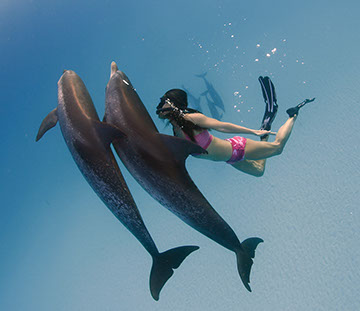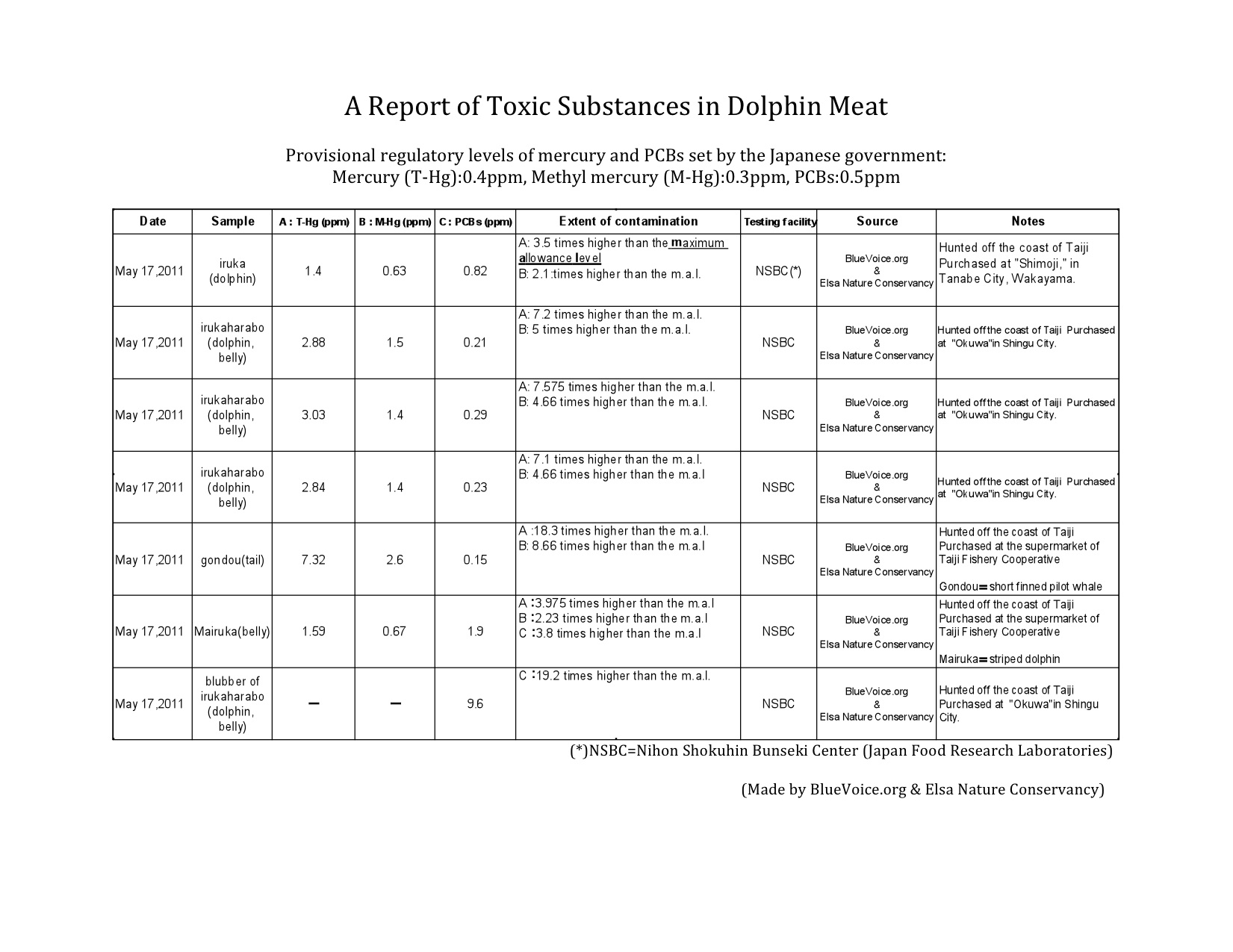The Dolphin Dance Project is supporting an international effort at the International Whaling Commission – whose annual meeting begins July 11th in Jersey, UK – to raise awareness that small cetaceans (dolphins and porpoises) deserve the same protections we grant their larger cousins.
Chisa Hidaka, founder of the Dolphin Dance Project, translated and edited a report on the 2010-11 dolphin hunt in Taiji, Japan that will be distributed at the IWC. Researched and written by Sakae Hemmi of the Elsa Nature Conservancy, the report challenges the degree to which dolphin hunting can be described as “traditional” and documents the government’s failure to supervise it. The English summary of “The Dolphin Drive Hunt: Appropriate Management?” is posted below; the full report (Japanese) can be found at the Elsa website. Hardy Jones of Blue Voice, a long-time advocate for dolphins and whales, will distribute the summary at the IWC and give a press conference on the Japanese dolphin hunt.
Representing 89 countries, the IWC has been in the past and could continue to be a powerful force for protecting all cetaceans. It is time that its members recognized that, given all the human activities imposing severe survival pressure on cetaceans (oil and radiation spills, mercury and other pollutants, fishing, boating, sonar, ocean acidification and more) commercial whaling is now environmentally and economically unsustainable. We urge the IWC to shift its focus entirely to conservation. On this year’s IWC agenda is a proposal to create a South Atlantic whale sanctuary – we hope this will be passed and rigorously enforced.
We are proud to support cetacean conservation efforts through our films and other efforts. For more information on protecting dolphins and their habitat, please visit our Protect page and related blog post.
Thank you for your support of the Dolphin Dance Project!

The Dolphin Drive Hunt: Appropriate Management?
Observations from the Emergency Extension of the Hunting season of the Dolphin Drive Hunt in Taiji
The following is a summary of the report of Sakae Hemmi of Elsa Nature Conservancy (ENC) investigating the circumstances of the unusual suspension and resumption of the dolphin drive hunts in Taiji this year (2011), as well as ENC’s assessment of the current state of the dolphin drive hunt in Japan. The major findings were as follows:
Irregularities in the dolphin drive hunt season were found to have occurred due to a severe decline (to zero) of the pilot and false killer whale catches in February. The extension of the hunting season through May to attempt to fill the quotas for those species was found to be legal and within the regulation of Wakayama. Pressure from foreign pro-cetacean activists was likely not a significant contributing factor in the suspension or extension of the hunting season.
Inquiries to the Japan Fisheries Agency and the fisheries section of Wakayama prefecture regarding the regulation of hunt seasons and catch quotas revealed systemic deficiencies in the management of the dolphin drive hunt. Catch quotas were calculated and administered in a manner that systematically responded to the needs of fishermen but ignored the biology and ecology of dolphins, making them irrelevant as a mechanism for supporting the sustainable use/consumption of dolphins as a marine resource. Oversight was lacking, with all catch data reported by fishermen in the absence of independent or scientific verification. Enforcement was weak, with no penalties in place for the mismanagement of quotas. In Futo the quota system failed to prevent or explain the depletion of striped dolphin stocks. A similar trend in Taiji is not unlikely.
Despite previous appeals from ENC to the Ministry of Health, Labor and Welfare, the Consumer Affairs Agency and other relevant agencies, toxicity information was still missing from the labels of packaged dolphin meat. In some of the samples tested for this investigation, levels of PCBs were 19.2 times the allowable national limit.(See the table attached.)
Glaring inconsistencies in the official position of the Japanese government with the realities of the town of Taiji were found. Records showed that while whaling does date back 400 years, the “traditional” whaling actually ended in 1878 after a whaling disaster that decimated the Taiji whaling fleet. Regular dolphin drive hunts date back only 42 years to 1969 when pilot whales were captured on a large scale for display at the Taiji Whale Museum. Currently only 8.5% of the people in the town are employed in the fisheries and only about 100 people at the most depend on whaling or whaling-related activities for their livelihood. Historical records and demographic data do not support the contention that “Taiji is a ‘Whaling Town’ that cannot survive without whaling.”
By supporting the dolphin drive hunts, the policies and position of the Japanese government harm not only dolphins but the health and well being of Japanese people, particularly in Taiji. We are hopeful for a change that will bring our nation closer to those of other ‘modern’ countries and with contemporary, global views about the appropriate treatment of wild animals and natural resources.

The Elsa Nature Conservancy was established in 1976 with the aim of global nature and environmental protection across a broad spectrum, from one’s own doorstep to the sky. Elsa always looks for the blind spots of the conservation movement — things others have forgotten about – and has campaigned for the protection of animals that are going extinct unnoticed, such as the Japanese reed bunting (Embriza yessoensis). Furthermore, the organization was campaigning for dolphin and elephant protection before the media took up these issues. It has also continued the debate in opposition to vivisection, as well as criticism of safari parks, zoos, and aquariums. Additionally, Elsa has from the very beginning used recycled paper for its publications, and makes its own stationery and note-pads out of paper with only side used, and from computer printing scraps, in order to save as many trees as possible. Elsa’s basic approach is “Each person practices nature/environment protection in whatever way is personally possible.” While the organization sets forth grand ideals, individual members carry out their own modest but diligent activities.
Elsa Nature Conservancy: Box2, Tsukuba Gakuen Post Office, Tsukuba 305-8691, Japan

